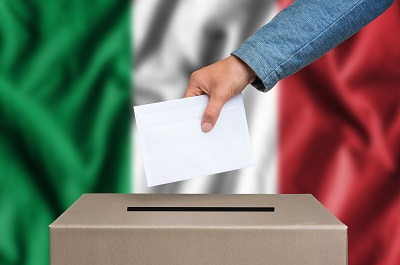
On Sunday, the new Italian government refused to let a rescue boat with more than 600 migrants dock in an Italian port. The same ship eventually docked in a Spanish port. As the Italians have long thought they have been left alone by European partners in “managing” (attempting to) waves of refugees coming from North Africa, this fact was celebrated widely and certainly strenghten the new government reputation for resolve. It also showed there is a potential for tension developing among the right wing (Northern League) and the left wing (Five Stars Movement) of the government majority, as their positions on immigration and welfare tend to be different.
I’ve written a piece for our sister blog, the Law & Liberty website, a few days before this event. I see the two “populist” parties finding a common ground in their longing for bigger government.
If we look at the new government’s economic agenda, on the other hand, there’s not much there that will foster Italy’s growth. The Italian economy grew by 1.7 percent in 2017; not much, but at least positive growth. Lowering the retirement age, reintroducing labor-market restrictions, “punishing” businesses that move abroad (a recent proposal by Five Star’s Luigi Di Maio) will not help wealth-creation. But Italians are used to bad government, and bad government may look good to markets and foreign investors if everybody is taking it as preferable to catastrophic government (quitting the euro, bank runs, bank nationalizations, capital controls).Perhaps the saddest part of this picture is that Italy would need some sort of a credible alternative—and it has none. The “moderate” parties are still in shambles, the political leaders of the immediate past aren’t credible, newcomers on the scene seem to believe they can win votes by acting like more presentable alternatives to populists, but without challenging their own ideas. This was, in a way, the game played by Renzi, of the Democratic Party, who inadvertently legitimized the anti-European rhetoric of his opponents as he entered into fights with Brussels to be allowed to increase deficit spending.

READER COMMENTS
Thaomas
Jun 15 2018 at 4:15pm
Surely the proper course of action (which EU rules do not seem to permit) should be increase spending and the deficit if the public sector has opportunities to invest in projects for which an NPV is positive and to reduce investment in projects for which an NPV is negative.
EB
Jun 17 2018 at 1:46pm
I know very little about Italy’s politics and government. From what I know Italy’s political competition has been almost perfect for a long time: too many mafia-type groups trying to be part of a coalition to divide the control of the many functions governments at all level perform. This is true for 0ld, traditional, moderate parties as well as all the several factions that fight for a small share of power. Nothing has changed for centuries (before the national union the factions competed for territory). Given the intensity of the political competition, we should not be surprised that government (including all levels) continues to grow: factions promise more government to solve problems. Again, it has been going on for a long time. There has been at least one constraint to this process of legal extortion: what matters to factions is control of a relevant function, that is, one large enough to meet the factions’ demands for power and wealth (relevant Laffer curves differ for functions, one of the reasons for high volatility in coalitions). There may be other constraints, but that one appears to be very important.
Indeed EU has had no impact on that competition. Although the Euro has limited access to the inflation tax, post-Draghi ECB has been lending governments enough to continue financing large deficits. And particular issues, like the refugees, are good only as a tool to strengthen the factions’ strategies in the political competition.
Comments are closed.